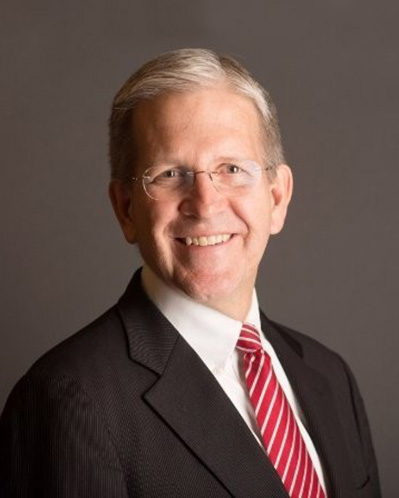
David Colton is currently a student coach at the J. Reuben Clark Law School at Brigham Young University as well as Chairman of the International Advisory Council of the International Center for Law and Religion Studies (ICLRS). He is assisting with several initiatives with ICLRS. He and his wife, Julie, recently served as Government Relations missionaries for The Church of Jesus Christ of Latter-day Saints assigned to the United Nations in New York, City. David also worked as Europe Area Legal Counsel for the Church. He retired as Senior Vice President and General Counsel of Frreport-McMoran Copper & Gold Company (formerly Phelps Dodge). He was a partner at Van Cott, Bagley, Cornwall & McCarthy. He earned a JD from BYU's J. Reuben Clark Law School. He has been an active part of ICLRS since its formation.
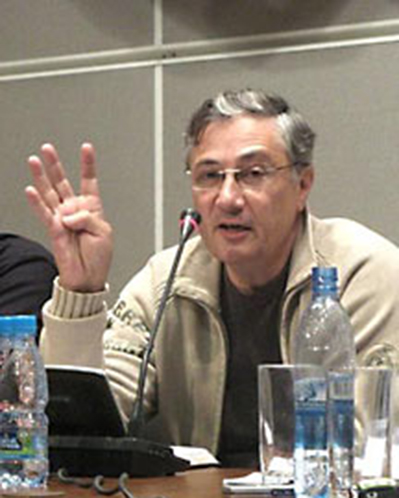
Boris Falikov graduated from the Faculty of Foreign Languages of Saratov Pedagogical Institute. He joined the teaching staff of the Institute of USA and Canada with the Russian Academy of Sciences. There, in 1985, he defended a historical sciences PhD candidate’s thesis,Socio-political aspects of some religious movements in the US (Hinduism and Buddhism). He has worked in the Orientalist Institute with the Russian Academy of Sciences, in the Department of Comparative Cultural Studies, where he’s been studying the phenomenon of spreading of Hinduism and Buddhism in the Western culture. During the early 1990s, he has been lecturing at Lewis & Clark College, University of Georgetown and the University of Kansas. In 1997 – 1998, he was the OSCE expert on issues of freedom of religion. Since 1999, he is an assistant professor at Russian State University for the Humanities (RSUH). He teaches at the RSUH Centre of Religion Studies and is Head of the International Department of Culture newspaper. Boris Falikov is the author of 4 monographs: Religion as part of political life in the US (1985), Neo-Hinduism and the Western culture (1994), Christianity and other religions (1999), Cults and culture: from Helena Blavatsky to Ron Hubbard (2007). In 2000-2002, he was the Chief Editor of the internet portal World of Religions.
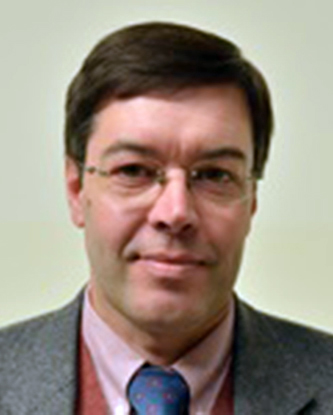
Gabriel Gonzáles Merlano is a priest with a Bachelor of Theology from the Gregorian University of Rome, a Bachelor of Canon Law from the Universidad Pontificia de Salamanca, and a Doctor of Canon Law from the Pontificia Universidad Católica Argentina. He is a judge and judicial vicar of the Ecclesiastical Court of Canelones. Since 1999, he is dedicated to teaching, and is currently a full professor at the Faculty of Law of Universidad Católica del Uruguay, and a researcher in the area of the state-law-religion relationship. Professor Merlano is a founding member of the Institute of Religious Law of the State (IDRE) and a member of the Latin American Consortium for Religious Freedom (CLLR). He has participated in forums and conferences in Uruguay and abroad, and is also the author of books and articles in national and international publications, mainly in relation to the canonical subject, freedom of religion, and philosophy and history law.
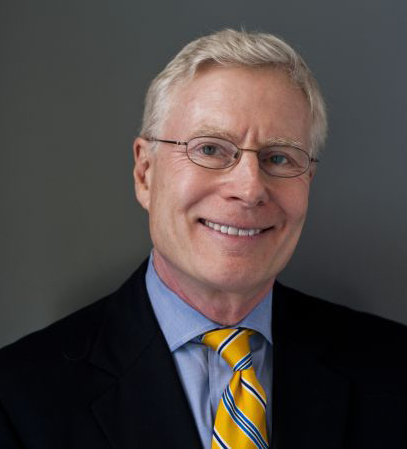
Charles C. Haynes is vice president of the Freedom Forum Institute / Religious Freedom Center and a senior scholar at the First Amendment Center.r He wites and speaks extensively on religious liberty and religion in American public life. Haynes is best known for his work on First Amendment issues in public schools. Over the past two decades, he has been the principal organizer and drafter of consensus guidelines on religious liberty in schools, endorsed by a broad range of religious and educational organizations. Haynes is the author or co-author of six books, including First Freedoms: A Documentary History of First Amendment Rights in America, and Religion in American Public Life: Living with Our Deepest Differences. His column, Inside the First Amendment, appears in newspapers nationwide. He is a founding board member of the Character Education Partnership, and serves on the steering committee of the Campaign for the Civic Mission of Schools and the American Bar Association Advisory Commission on Public Education. He chairs the Committee on Religious Liberty, founded by the National Council of Churches. In 2008, he received the Virginia First Freedom Award from the Council for America’s First Freedom. Haynes holds a master’s degree from Harvard Divinity School and a doctorate from Emory University.
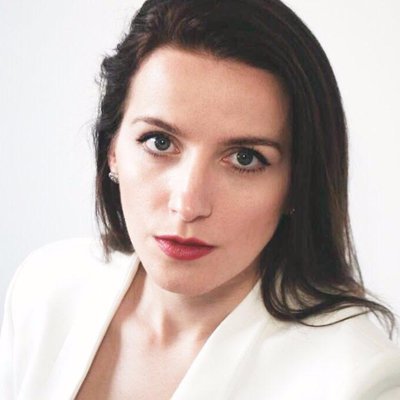
Ewelina U. Ochab is a legal researcher and human rights advocate, and author of the book Never Again: Legal Responses to a Broken Promise in the Middle East. Ochab works on the topic of the persecution of minorities around the world, with main projects including Daesh genocide in Syria and Iraq, Boko Haram atrocities in West Africa, and the situation of religious minorities in South Asia. Ochab has written over 30 UN reports (including Universal Periodic Review reports) and has made oral and written submissions at the Human Rights Council sessions and the UN Forum on Minority Issues. She is currently working on her PhD in international law, human rights, and medical ethics at the University of Kent. She s a contributor to Forbes. She has also published in HuffPost, Providence Magazine, Oxford Human Rights Hub, UnHerd, and Washington Examiner.
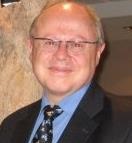
Mr. Rochow practices from Howard Zelling Chambers, which grew from the chambers that he, with Steve Roder (now Supreme Court Registrar), founded in 1992. He appears at first instance and on appeal in a variety of areas of commercial law, specializing in trade practices and competition matters. Mr. Rochow has had broad commercial litigation experience. He has most frequently appeared in the Federal Court of Australia (Adelaide Registry) and the Supreme Court of South Australia. He also appears in other registries of the Federal Court. Mr. Rochow has also appeared in the High Court of Australia, District Court of South Australia, South Australian Industrial Relations Court and other State and Territorial jurisdictions. He has appeared before the Victorian Civil and Administrative Tribunal, the Australian Securities and Investment Commission, the Australian Competition, and Consumer Commission, Australian Competition Tribunal and the Delegate for the Registrar of Trade Marks. The range of matters in which he has been and continues to be retained to advise and appear before superior courts include trade practices contraventions, interpretation of statues, construction of contractual terms, restraint of trade, failure to use trade marks bona fide, annual valuation of land, negligent misstatement and pure economic loss, caveats over real property titles, indefeasibility of real property title, shareholder disputes, international product liability, and sale of goods. Additionally, he now holds adjunct professorships at the law schools of Notre Dame Australia and the University of Adelaide. He teaches Jurisprudence, Remedies and Economics and Law.
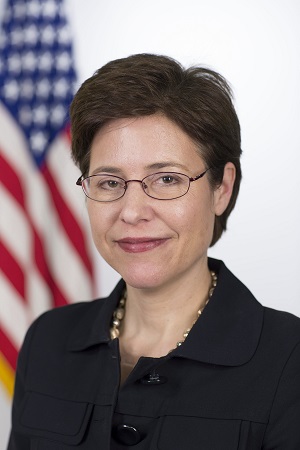
Melissa Rogers is a nonresident senior fellow in Governance Studies at the Brookings Institution. She recently served as special assistant to the president and executive director of the White House Office of Faith-based and Neighborhood Partnerships, during the Obama administration. Melissa previously served as chair of the inaugural Advisory Council on Faith-based and Neighborhood Partnerships. Prior to that, she was director of the Center for Religion and Public Affairs at Wake Forest University Divinity School. She has also served as executive director of the Pew Forum on Religion and Public Life and general counsel of the Baptist Joint Committee for Religious Liberty. Her area of expertise includes the First Amendment's religion clauses, religion in American public life, and the interplay of religion, policy, and politics. Rogers co-authored a case book on religion and law for Baylor University Press, Religious Freedom and the Supreme Court (2008). She holds a JD from University of Pennsylvania Law School and a BA from Baylor University.
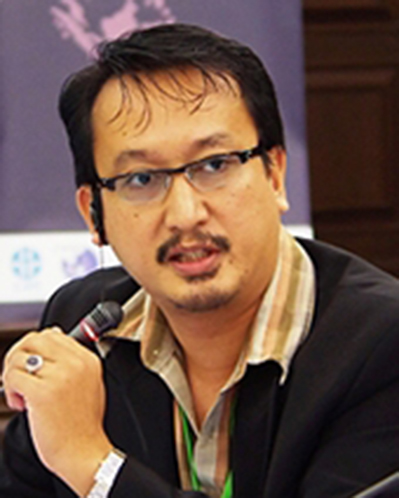
Dicky Sofjan is a core doctoral faculty in the Indonesian Consortium for Religious Studies (ICRS), an international, interdisciplinary, and inter-religious PhD program at the Graduate School of Universitas Gadjah Mada (UGM) in Yogyakarta. Sofjan is the principal investigator of a nine-country collaborative research program on religion, public policy, and social transformation in Southeast Asia, sponsored by the Henry Luce Foundation. His research has mostly been focused on the nexus between religion and politics with an emphasis on Islam in the public sphere. He is currently leading a research team to develop a prototype system for the Indonesian Interfaith Weather Station (IIWS), an early warning system that would preempt, prevent, and mitigate intra- and inter-religious conflicts.
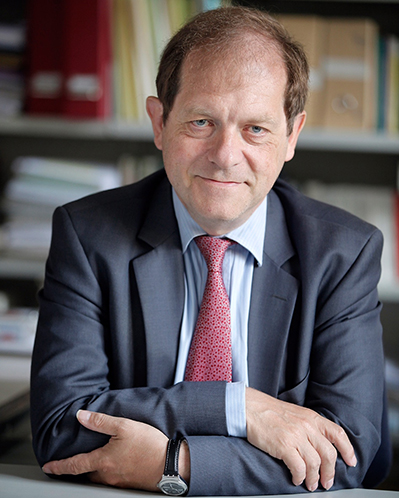
Rik Torfs studied law and canon law at the Katholieke Universiteit Leuven, Belgium, and obtained a degree in notarial law. He received his doctorate in 1987 with a dissertation on the canonical concept of marriage. In 1988, Torfs was appointed professor in the Faculty of Canon Law at the KU Leuven. He became full-time professor in 1996. From 1994 to 2003 and 2009 to 2013, he served as Dean of the Faculty. He is a guest professor at the University of Stellenbosch, University of Paris, University of Nijmegen, and University of Strasbourg. Torfs also serves on the academic advisory board for the International Center for Law and Religion Studies at Brigham Young University and is a member of the board of experts of the International Religious Liberty Association. He is a former president and board member of the European Consortium for Church and State Research and founder and board member of the Working Group Nederlandstalige Canonisten (Dutch-speaking Canonists). He became a member of the Commission for Intercultural dialogue in 2005, the Commissie ter invulling van de cursus maatschappelijke oriëntatie in 2006, and Les Assises de l’Interculturalité in 2009. He serves as an advisor to the government of Romania regarding the protection of religious minorities. On the 13 of June 2010, he was elected a member of the Belgian Center. After stepping down from politices, he was elected Rector of KU Levuen on 17 May 2013 and assumed office on 1 August 2013. He has written many articles and numerous books dealing with canon law, law, and Church and State relationships.
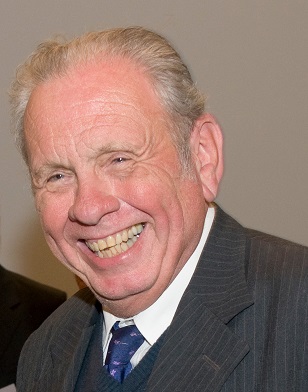
Norberto Padilla is an attorney who graduated from the University of Buenos Aires in 1970. He was an advisor to Dr. Fernando de la Rúa, Chairman of the Commission for Constitutional Affairs in the Argentina Senate, between 1983 and 1989. In the Foreign Affairs Ministry, he served as an advisor and Assistant-Secretary for Religious Affairs (Worship) from 1989 until 1998, and as Secretary for Religious Affairs (Worship) with the rank of ambassador from December 1999 to December 2001. Padilla began his career as a professor of Constitutional Law at the Faculty of Law and Social Sciences at the University of Buenos Aires in 1972. He was Assistant Professor of Constitutional Law, now retired. Since 1974, he is a professor of Constitutional Law at the Faculty of Law, the Pontifical Catholic University of Argentina, where he reached the position of a full regular professor. He has been a member of the Board of the Faculty and of the High Council of the University. He is a full member of the Argentine Association of Constitutional Law, of the Editorial Board of the review of culture Criterio, former President and life Board Member of Fundación Navarro Viola, recently appointed full member of the National Academy of Moral and Political Sciences, honorary advisor of the Argentine Council for International Relations (CARI), and a life member of the Argentine Institute of Genealogical Sciences. He is a founding member and member of the Board of the Argentine Council for Religious Freedom (CALIR), and founding member and currently President of the Board of the Latin American Consortium for Religious Freedom. Since 1972, he has been a co-worker for the Argentine Bishops Conference Commission for Ecumenism and Interreligious Dialogue, and has been appointed on three occasions by the Pontifical Council for the Promotion of Christian Unity to ecumenical and Catholic-Jewish conferences.
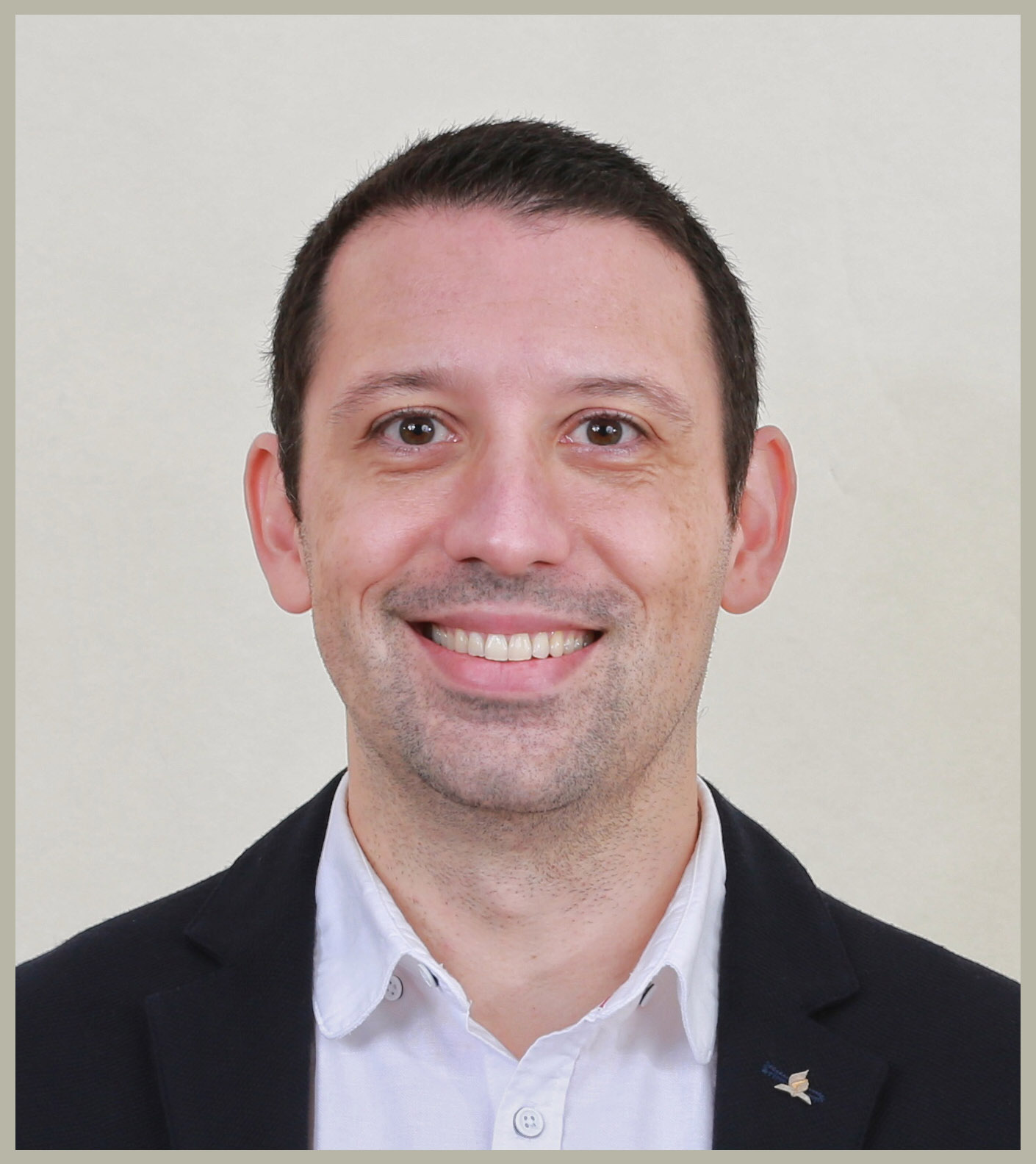
Juan Martin Vives is a professor of undergraduate and postgraduate courses at Universidad Adventista del Plata, Argentina. He served as General Counsel for the university and has held various positions of academic management. In 2015 he was appointed Director of the Center for Studies on Law and Religion (CEDYR) at the university and Editor-in-Chief of the academic journal DER - Derecho, Estado y Religión. He earned a JD (National University of Córdoba), a diploma in Law Teaching (Universidad Adventista del Plata), an LLM in Corporate Law (Austral University), and a PhD in Public Global Law (Autonomous University of Barcelona). He was a member of the Charter Class of the International Center for Law and Religion Studies' Advanced Program on Religion and the Rule of Law in Oxford and received a scholarship to pursue postgraduate studies in Lucerne, Switzerland from the Center for Comparative Constitutional Law and Religion, University of Lucerne. Author of articles and book chapters, he is a regular speaker on matters related to law and religion, religious freedom, and relations between church and state. He recently appeared as amicus curiae before the Argentine Supreme Court in a case involving freedom of religion and belief.
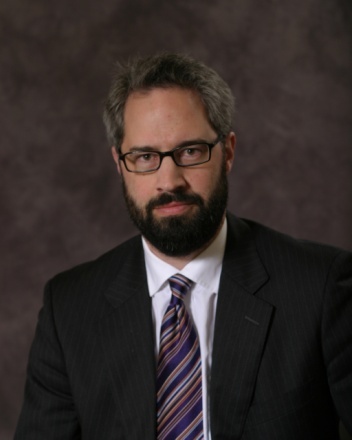
Paul Babie holds a personal chair of law at the Adelaide Law School of the University of Adelaide. He is currently Associate Dean (International) of the Faculty of the Professions at the Adelaide Law School and Director of the Law and Religion Project of the Research Unit for the Study of Society, Ethics, and Law. He holds a BA in sociology from the University of Calgary, a BThSt from Flinders University, an LLB from the University of Alberta, an LLM from the University of Melbourne, and a DPhil in law from the University of Oxford. He is a barrister and solicitor (inactive) of the Court of Queen’s Bench of Alberta (Canada), and an associate member of the Law Society of South Australia. His primary research interests include private law theory, property theory, and law and religion. He has published and spoken extensively in these fields. He teaches property law, property theory, law and religion, and Roman law.
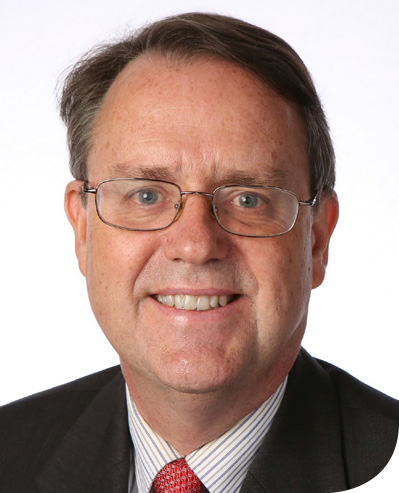
Patrick Parkinson is Dean of Law, TC Beirne School of Law, The University of Queensland, in Brisbane, Australia. He was previously Professor of Law, University of Sydney. Professor Parkinson a specialist in family law, child protection and the law of equity and trusts. He is also a founding member of Freedom for Faith. He was President of the International Society of Family Law from 2011-2014. His books include Australian Family Law in Context (6th ed, 2015), Tradition and Change in Australian Law (5th ed, 2013), Family Law and the Indissolubility of Parenthood (2011), The Voice of a Child in Family Law Disputes (with Judy Cashmore, 2008), Child Sexual Abuse and the Churches (2nd ed, 2003) and Principles of Equity (editor, 2nd ed., 2003). Professor Parkinson served from 2004-2007 as Chairperson of the Family Law Council, an advisory body to the federal Attorney- General, and also chaired a review of the Child Support Scheme in 2004-05 which led to the enactment of major changes to the Child Support Scheme. Prof. Parkinson is also well-known for his community work concerning child protection. He has been a member of the NSW Child Protection Council, and was Chairperson of a major review of the state law concerning child protection which led to the enactment of the Children and Young Persons (Care and Protection) Act 1998. He also works with churches on child protection issues.
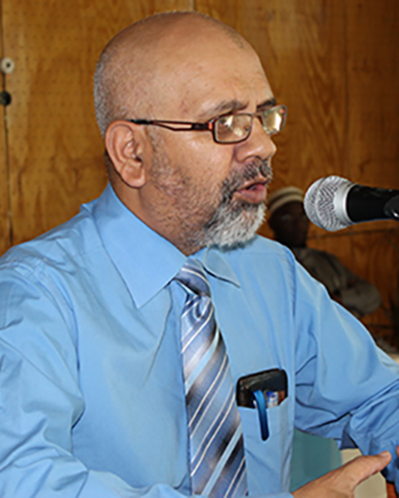
Muhammed Haron is a professor at the University of Botswana’s Theology & Religious Studies Department where he teaches Religious Studies courses. Haron was formerly associated with the University of the Western Cape where he taught Arabic Studies. Currently, Haron is an Associate Researcher at the University of Pretoria and was a visiting Professor at Rhodes University (April-May 2018). He edits University of Cape Town’s Annual Review of Islam in Africa and is the Editor-in-Chief of Duke University’s Research Africa Reviews. He authored The Dynamics of Christian-Muslim Relations (2006), edited Going Forward: South African-Malaysia Relations (2008), compiled South Africa’s Muslims: Annotated Bibliography (1997), and South Africa’s Truth and Reconciliation Commission: An Annotated Bibliography (2009), and co-edited Islamic Civilization in Southern Africa (2009) and Muslim Higher Education in Postcolonial Africa (2016). He co-edited Proceedings of the 2016 Islamic Civilization in Southern Africa Congress (Istanbul 2018 [forthcoming]) and edited N. Chand’s Bechuanaland’s Muslim Pioneers: Their Heritage and Legacies (Gaborone 2018 [forthcoming]).
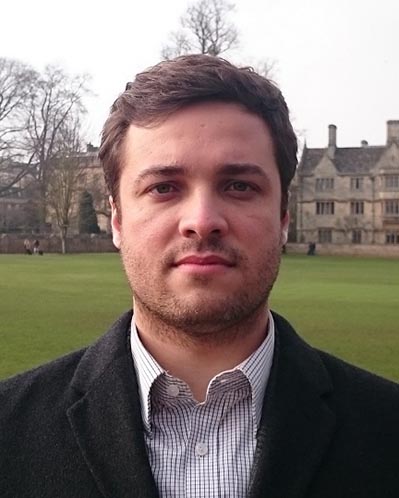
Rodrigo Vitorino Souza Alves is a member of the Faculty of Law of Universidade Federal de Uberlândia, the Federal University of Uberlandia (Brazil) and the Leading Researcher of the Brazilian Center for Studies in Law and Religion. He is a researcher at the Ratio Legis - Center for Legal Research and Development of the Autonomous University of Lisbon on the topic religious freedom, social tension and security, and was an Academic Visitor at the University of Oxford (2014-2015). At the United Nations Office at Geneva he served as guest speaker at the Sixth Session of the Forum on Minority Issues on Beyond Freedom of Religion or Belief: Guaranteeing the Rights of Religious Minorities (OHCHR), which led to the publication of a set of recommendations by the Human Rights Council. He sits at the International Academic Advisory Board of the Advanced Program on Religion and the Rule of Law at Oxford and is a member of the Editorial Board of the Series Law and Religion in a Global Context, published by Springer, and the editor of the book Latin American Perspectives on Law and Religion. He was a member of the Expert Advisory Group for the International Development of Law Organization (IDLO) study on freedom of religion or belief.
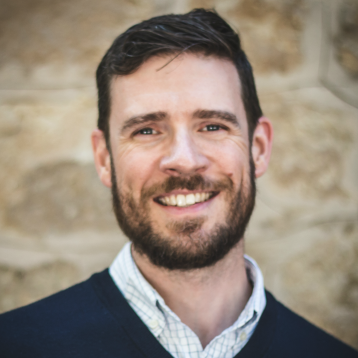
The Rev. Dr. Andrew P.W. Bennett is Program Director for Cardus Law. He is an ordained deacon in the Ukrainian Greek-Catholic Church in the Eparchy (Diocese) of Toronto and Eastern Canada. He served as Canada's first Ambassador for Religious Freedom and Head of the Office of Religious Freedom from 2013 to 2016 during which time he led in defending and championing religious freedom internationally as a core element of Canada's principled foreign policy. At the same time, he served as Canada's Head of Delegation to the International Holocaust Remembrance Alliance, a 31-country body which leads international efforts in Holocaust education, research, and remembrance. As Director of Cardus Law, Fr. Deacon Andrew works to promote religious freedom, as we broaden our commentary on issues faced in Canada and around the world. This is consistent with his passion for religious freedom and the importance of public faith. In conjunction with his work at Cardus, Fr. Deacon Andrew holds the position of Senior Fellow at the Religious Freedom Institute (RFI) in Washington, DC. The RFI is an independent think-tank committed to achieving broad acceptance of religious liberty as a fundamental human right, the cornerstone of a successful society, and a source of national and international security. Fr. Deacon Andrew holds a Ph.D. in Politics (2002) from the University of Edinburgh as well as degrees in history from McGill and Dalhousie universities.
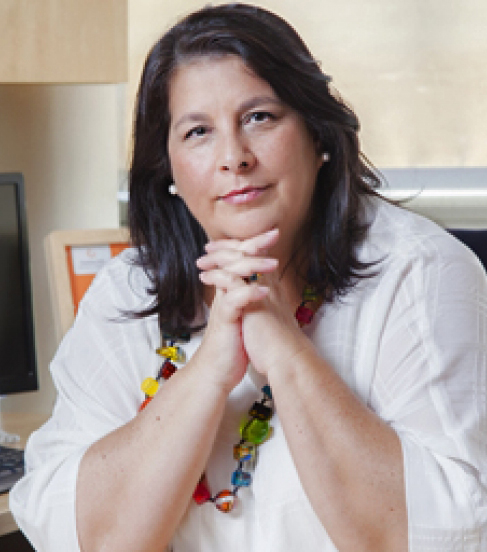
Ana María Celis Brunet is an associate professor in the Faculty of Law, Pontificia Universidad Católica de Chile (UC), where she teaches canon law and law and religion, as well as post graduate courses in different programs. She received her license and doctoral degree in canon law at the Pontificia Università Gregoriana (Rome, Italy) with the dissertation La relevancia canónica del matrimonio civil a la luz de la Teoría general del Acto jurídico, contribución teórica a la experiencia jurídica chilena. Professor Celis is an ecclesiastical lawyer before the Ecclesiastical Court of Santiago. She is Director of El Centro UC Derecho y Religión (the Center for Law and Religion at UC), which began in 2005 as Centro de Libertad Religiosa, a center for studying Church-State matters and promoting religious freedom. She was the secretary and then President (2013-2016) of the Consorcio Latinoamericano de Libertad Religiosa (Latin American Consortium for Religious Freedom). She is President of the International Consortium for Law and Religion Studies (ICLARS). in August 2018 she was appointed President of the National Council of the Chilean Church for the Prevention of Sexual Abuse and Accompaniment of Victims by Pope Francis.
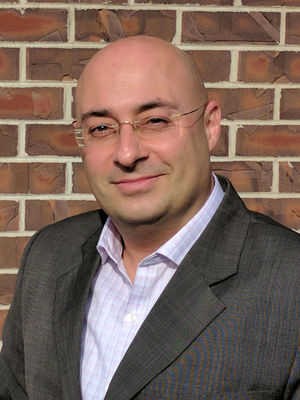
Thomas David DuBois is a historian of modern China and transnational Asia. His areas of specialization include religion, charities and society in China, regulation and definitions of religion in China and elsewhere, and modern history of the Chinese meat and dairy industry. He holds BA (East Asian Languages and Cultures) and MA (Social Sciences) degrees from the University of Chicago and a PhD in History of Modern China from the University of California, Los Angeles. He was a Post-Doctoral Fellow in East Asian Religions at Washington University, Saint Louis; Associate Professor in the Deparment of History at National University of Singapore; Senior Research Fellow and Deputy Director, ANU College of Asia and the Pacfici, School of Culture, History and Language; Senior Research Fellow at Chinese University of Hong Kong School of Culture, History and Language; and most recently Visiting Research Fellow, Fudan University Development Institute, Shanghai. His publications include Sacred Village: Social Change and Religious Life in Rural North China (Hawaii, 2005), Casting Faiths: Imperialism and the Transformation of Religion in East and Southeast Asia (Palgrave, 2009); Religion and the Making of Modern East Asia (Cambridge, 2011); and Empire and the Meaning of Religion in Northeast Asia: Manchuria 1900–1945 (Cambridge, 2017).
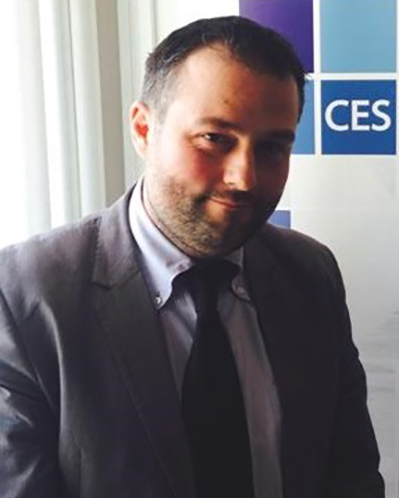
Dr. Vanja-Ivan Savić earned a first law degree (cum laude), a master’s degree in Science in Law, and a PhD in Legal Theory and Corporate Criminal Law from the University of Zagreb. In 2005 he was British Chevening Scholar at The University of Edinburgh, where he clerked for Rt. Hon. John Robert Reed, now judge of the Supreme Court of the United Kingdom, and in 2010 he was an International Fellow at DePaul University’s International Human Rights Law Institute. Most recently he served as Distinguished Visiting Research Fellow at the University of Adelaide’s Research Unit for the Study of Society, Law and Religion, a visiting scholar at the Buffett Center at Northwestern University, and a guest professor at DePaul University. Dr. Savić was also visiting researcher and lecturer at the University of Vienna, and serves as an associate professor at the University of Zagreb, where he works in the Legal Theory Department of the Faculty of Law. His area of expertise includes legal theory, theory of law and state, law and religion, corporate criminal law, and human rights. He has published articles in Croatian, English, and Vietnamese including a textbook on criminal liability of juristic persons, and co-created an academic blog. In 2016 he was a Croatian representative for the European Consortium for Church and State Research, and a consultant for OSCE’s platform for making Guidelines for FoRB practices in OSCE member states. Dr. Savić has conducted workshops on combatting human trafficking in Vietnam and in Croatia, and has been a participant and speaker at various conferences and workshops including the "Religion and The Rule of Law" training program in Myanmar 2017.
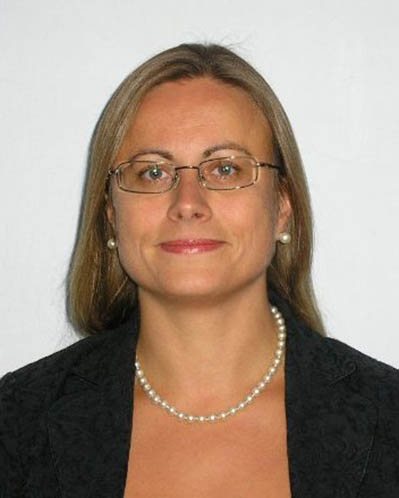
Dr. Merilin Kiviorg (DPhil Oxford, mag iur Tartu) is a senior research fellow in public international law and human rights at the University of Tartu Faculty of Law and an author of many articles published on law and religion, and on European human rights law and practice regarding freedom of religion or belief. She has taught international law, human rights and international relations at the University of Oxford, as well as serving as a lecturer and assistant professor in international law, human rights and EU law at the University of Tartu in Estonia. She was a Max Weber Fellow at the European University Institute in Florence. She has also served as an expert advisor on freedom of religion or belief for non-governmental and governmental bodies (the Estonian Ministry of Internal Affairs, the Legal Chancellor, and the Estonian President). She is currently teaching courses on comparative human rights and on religion and human rights. Her current research interests are human rights and religion in Europe with a special focus on Eastern Europe and specifically Russia.
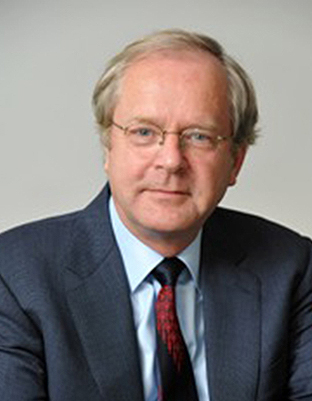
Gerhard Robbers is emeritus professor for public law at the University of Trier, Germany. From 2014 to 2016 he has served as minister of justice and for consumer protection of Rhineland-Palatinate, a federal state of Germany. He received his doctoral degree in law in 1979 and obtained his final law degree in 1980 in Freiburg. From 1981-1984 he served as law clerk to the President of the German Federal Constitutional Court. In 1986 he obtained his habilitation in Law. From 1988 to 1989 he was Professor of Law at the University of Heidelberg. Since 1989 he has been Professor for Public Law at the University of Trier. He was Director of the Institute for European Constitutional Law and Director of the Institute for Legal Policy at Trier University. From 2008 to 2014, he served in additional office as judge at the Constitutional Court of Rhineland-Palatinate. He has served as an advisor to several national governments and international organizations and has argued several cases of public law before the German Federal Constitutional Court and the European Court of Human Rights.
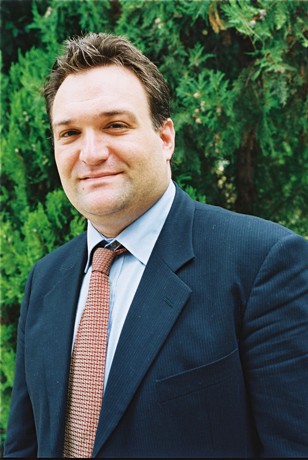
Nikos Maghioros is an Assistant Professor of Canon and Ecclesiastical Law in the Faculty of Theology of Aristotle University of Thessaloniki. He studied in the Aristotle University and in the Pontifical Lateran University. He teaches Orthodox Canon and Ecclesiastical Law, Sources of Canon Law, Comparative Canon Law, Church and State relations in Greece and in European Union. He has organized and participated in various meetings and congresses relative to the inter-Christian dialogue and on the relations between Religion and State. He is ECTS Coordination of the Department of Theology and member of the Commission on European Projects of the Aristotle University of Thessaloniki. His main publications are 'La recezione della normativa conciliare nel diritto imperiale in materia di fede conservato ', in CTh. XVI", Roma, 1998; Constantine the Great and the Donatist Crisis. A Study on the relation between Church and state during the reign of Constantine, Thessaloniki, 2001; 'L'Église catholique romaine et l'État en Grèce. Une approche canonique –juridique', in L’Année Canonique, 45 (2003), 177-190; 'State and Church in Greece: “to reform or not to reform?”"', in Droit et Religions, Annuaire 2 t. 1 (2006-2007), 496-534; 'Spiritualità e tradizione canonica orientale', in Studia et Documenta Historiae et Iuris, Rome, 73 (2007), 487-496'; and The patrimonial Law of the Roman Catholic Church (De bonis Ecclesiae temporalibus), Thessaloniki, 2007.
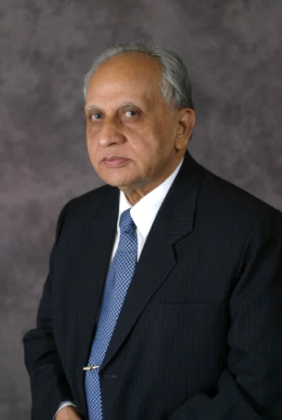
Dr. Tahir Mahmood had his higher legal education in England and is a senior Law Professor of India with a teaching and research career of over half a century. He spent about three decades in Delhi University and served as Dean of its Law Faculty. In 2003 he moved to Amity University where he holds the positions of Distinguished Jurist Chair, Professor of Eminence, and Chairman of the Institute of Advanced Legal Studies. He has been on deputation to the Government of India as Chairman of the National Minorities Commission and Member of the National Human Rights Commission, National Commission for Backward Classes among Minorities, and Law Commission of India. His major interests are in religion-state relations, Islamic law and other family laws. His many publications include Laws of India on Religion and Religious Affairs (2008), Religion, Law and Society across the Globe (2013), and Muslim Law in India and Abroad (2nd edn 2016). His books on family laws have been cited in a large number of judgments of the Supreme Court and various High Courts of India. He is a member of the Steering Committee of Italy-based International Consortium for Law and Religion Studies, and Editorial Board of the Journal of Muslim Minority Affairs (KA University, Saudi Arabia). He is the recipient of the Shah Waliullah Award for Contemporary Understanding of Islamic Law (India 2009), and the Distinguished Academic Services Award (US, 2010). He is the founding President of the South Asia Consortium for Religion and Law Studies (SACRALS), established in India in January 2017.
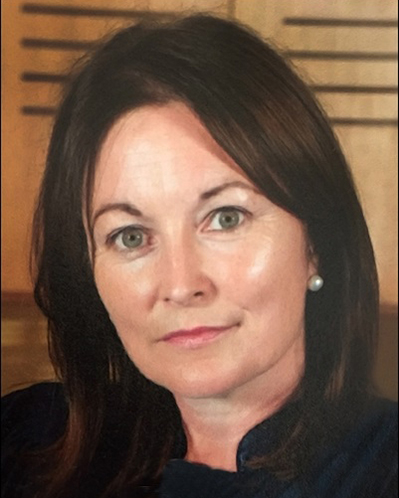
Ann Power-Forde is a Human Rights Jurist and an experienced International Judge, having served on the European Court of Human Rights from March 2008 until her final case in July 2015. During her time on the Strasbourg Court her separate opinions contributed to significant developments in the case law of the Court in diverse areas, including, the right of journalists to the protection of sources, the right to conscientious objection and the right not to be persecuted on the grounds of sexual orientation or religious belief. She has adjudicated on issues arising from the invasion of Iraq, the annexation of Crimea, the consequences of global terrorism, the refugee crisis in the Mediterranean and the legacy of European genocide.
A Consultant Adviser in International Human Rights Law, Ann is an Associate Tenant at Doughty Street Chambers, London and is Adjunct Professor in the School of Law and Government at Dublin City University. As Senior Counsel she developed a distinguished expertise in Public, Medical and Constitutional Law. Ann is an academic with over 25 years of experience in teaching Philosophy and Jurisprudence. She has published papers on a wide range of topics, including, international human rights law, bioethics, judicial ethics and risk management. She is an International Speaker on Human Rights and Issues of Global Justice. She is the Presiding Judge of the Constitutional Court Chamber at the Kosovo Specialist Chambers, an internationalized tribunal located in The Hague.
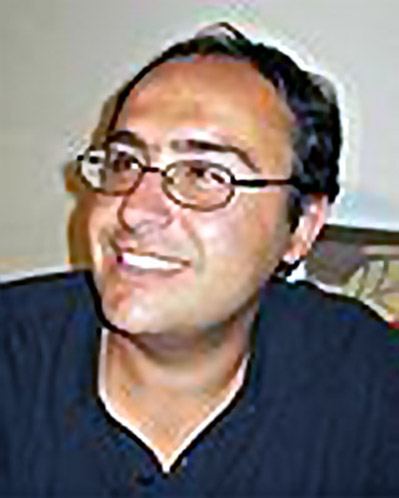
Alessandro Ferrari is an Associate Professor in the Department of Law, Economy, and Cultures, at the Università degli Studi dell’Insubria. He did his PhD at the University of Milan and at the University of Paris XI. His main research interests are Church and State issues in Italy and West Europe; French laïcité; Secularism and Civil Religion; Democracy and Religion; Islam in Italy and in Europe; Comparative Law of Religions. He is a member of CNRS (Centre national de la recherche scientifique) Research Group on 'Sociologie des Religions et de la Laïcité', the International Migration, Integration, and Social Cohesion Network, and the editorial board of Dalmon.
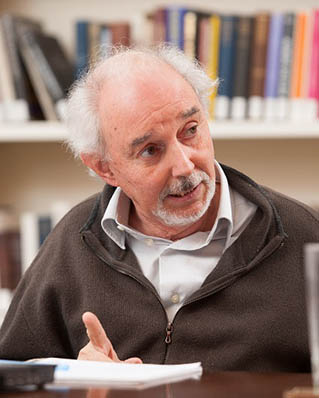
Silvio Ferrari, founder and honorary lifetime president of the International Consortium for Law and Religion Studies (ICLARS), was visiting professor at the University of California (Berkeley), the Institute for Advanced Legal Studies (London), the École Pratique des Hautes Études (Sorbonne, Paris), and the University of Leuven. His publications in English include Law, Religion, Constitution (edited with Cole Durham, Cristiana Cianitto, and Donlu Thayer); Religion in Public Spaces (edited with Sabrina Pastorelli); Law and Religion in the 21st Century (edited with Rinaldo Cristofori); Law and Religion in Post-Communist Europe (edited with Cole Durham and Elizabeth Sewell), Islam and European Legal System (edited with Anthony Bradney). He is a member of the Advisory Council on Freedom of Religion and Belief of the Organization for Security and Co-operation in Europe / Office for Democratic Institutions and Human Rights, member of the International Academy of Comparative Law, a founding editor of the Oxford Journal of Law and Religion, and member of the editorial board of the Ecclesiastical Law Journal. He delivered a Messenger Lecture at Cornell University and received the Distinguished Service Award of the International Center for Law and Religion Studies.
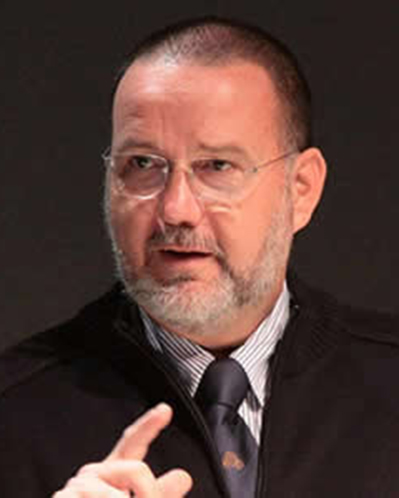
Alberto Melloni is a professor of History of Christianity at the University of Modena-Reggio and Chair Holder of the Unesco Chair on Religious Pluralism and Peace for his university and the University of Bologna. Since 2007 he has also served as director of the John XXIII Foundation for Religious Studies in Bologna. He serves on the board of several international journals of religion and has written numerous books on the history of the Vatican. He was a contributing author to The History of the Second Vatican Council and he currently serves as a member of the EU's TRES (Teaching Religion in a multicultural European Society).
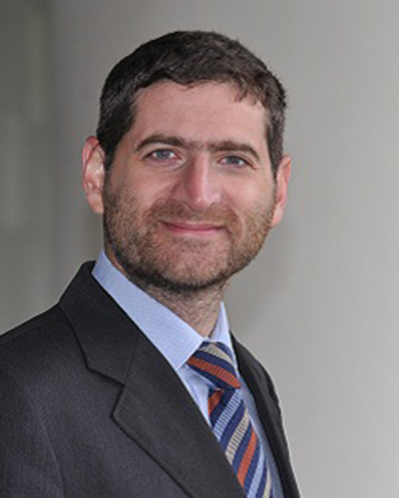
Andrea Pin is a senior lecturer in constitutional and comparative law at the University of Padua. He holds a PhD from the University of Turin. He has clerked at the Italian Constitutional Court since 2011. He is a senior fellow at the Center for the Study of Law and Religion at Emory University. He has authored two books, edited two books, and translated two additional books into Italian. His fields of study cover law and religion, comparative perspectives on human rights, comparative federalism, and constitutional interpretation.
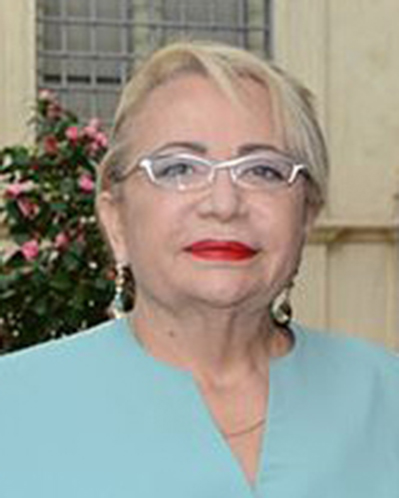
Clelia Piperno, Professor of Comparative Constitutional Law, University of Teramo, published The Constitutional Court and the Limit of Political Question in 1991, and The Democratic Coexistence Possible in a Multicultural Country in 2008. She collaborates with the Italian Ministry of Education, Universities, and Research (MIUR) and has held numerous institutional positions in the field of development cooperation, assisting local authorities and private institutions in this field. Her key areas of study are women, new technology, and Judaism. She is the Project Director and Chair of the Talmud Translation Project's Board of Directors. The Talmud Translation project is the an international translation project – one volume is currently available in Italian, the first Italian translation of the Talmud in 500 years.
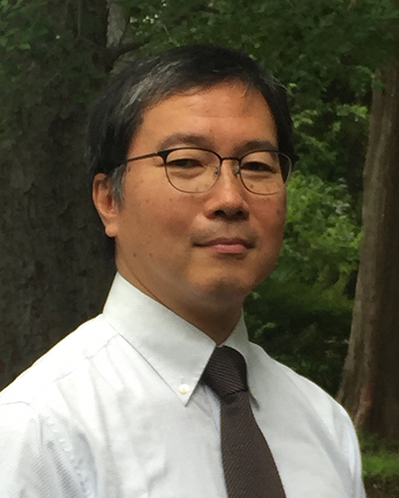
Eiichiro Takahata is a Professor of Constitutional Law at Nihon University, Japan. He received an LLM from the University of Georgia, USA in 1997. His specialties are constitutional law, comparative constitutional law, and “Law and Religion.” His publications include: "Religious Accommodation in Japan," 2007 Brigham Young University Law Review 729; "Das Recht auf religiöse Selbstbestimmung in Japan," in Persönlichkeitsschutz und Eigentumsfreiheit in Japan und Deutschland (Philip Kunig & Makoto Nagata, von., 2009, Carl Heymanns); "Japon," in Dictionnaire du Droit des Religions (Francis Messner, dir., 2011, Le Centre National de la Recherche Scientifique); "Religious education in Japan," in The Routledge International Handbook of Religious Education (Derek H. Davis & Elena Miroshnikova, eds., 2012, Routledge), as well as many articles and book chapters in Japanese. His recent academic interest focuses on religious education in Japanese private schools and governmental funding, and denominational autonomy and Japanese laws on religious institutions. This is his second appearance to the conference.
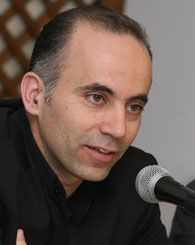
The Rev. Prof. Fadi Daou is Chair and CEO, Adyan Foundation, Beirut, Lebanon, where he also is scientific director of the Euro-Arab program, "Leaders for Interreligious Understanding" and the public reform program, "National Strategy for Education on Citizenship and Coexistence." He holds an MA in theology, from the Catholic University of the West (Angers, France), and in political philosophy from University Marc Bloch (Strasbourg, France), where he also earned his doctorate in theology. He is professor of interreligious dialogue and the geopolitics of religion at the Holy Spirit University of Kaslik (Lebanon). His previous roles include serving as director of the High Institute of Religious Studies at Saint Joseph University (Beirut) and as coordinator of interreligious dialogue and ecumenical relations for the Office of the Maronite Patriarchate. Rev. Prof. Daou is the author and editor of numerous books and articles and is the recipient of "The Civilization of Love" Award in Lebanon and, with Adyan Foundation, many national and international awards. He serves as an international visiting professor in many universities, as a member of various organizations such as the scientific board at Al-Mowafaqa Ecumenical Institute (Rabat, Morocco); Lebanon’s Ecumenical Disability Advocates Network (EDAN); and the Middle-Eastern Advisory Board of Awareness Foundation (United Kingdom). He works as a consultant on Middle Eastern issues, religion in the public sphere, and Christian-Muslim relations.
Prof. Fadi Daou is Chairman and CEO of Adyan Foundation where he also is the Scientific Director of the Euro-Arab program: Leaders for interreligious understanding. He holds an MA in theology, from the Catholic University of the West (Angers, France), and in political philosophy from University Marc Bloch (Strasbourg, France), where he also earned his doctorate in theology. He is a Professor of Interreligious dialogue and Geopolitics of religion at Université Saint-Esprit Kaslik. Pr. Daou is also the Coordinator of the interreligious and ecumenical relations at the Maronite church, and a Consultant on Middle-Eastern issues and Christian-Muslim relations to many organizations. He is the author and editor of a number of books and articles among which: Education and Coexistence in the Framework of Plural Citizenship (2012), Divine hospitality: Christian and Muslim Theologies of the other (co-author with Nayla Tabbara - 2011), Reconciling Ethics and Politics: The Role of Theology (2008).
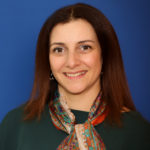
Dr. Nayla Tabbara is the Director of the Adyan Institute of Citizenship and Diverstiy Management, and the vice chair of Adyan Foundation. Previoiusly, she served as director of Aydan's Cross-Cultural Studies Department. She holds a doctorate in religious studies from the École Pratique des Hautes Études (Sorbonne, Paris) and Saint Joseph University (Beirut, Lebanon) and is a university professor of comparative religions and Islamic studies. She has published in the fields of Islamic theology and other religions; education on interreligious and intercultural diversity; and Qur’anic exegesis and Sufism. In addition, she works on curricula development (formal and non-formal) for multifaith education and intercultural citizenship. Her publications include Divine Hospitality: Christian and Muslim Theologies of the Other (2011, co-author with Fadi Daou; in Arabic and French, 2012); What About the Other? A Question for Intercultural Education in the 21st Century (editor, 2012); and the UNESCO publication, Christianity & Islam in the Context of Contemporary Culture (2009, co-editor with Dimitri Spivak). Numerous research projects and organizations including the research coordinator, L’Arche and Islam (Adyan & L’Arche Internationale); member, International Federation of Catholic Universities research group on religions and cultures, focusing on the topic "Conflicts Related to Religious and Cultural Diversity"; researcher, UNESCO Lebanese-Russian project on youth and intercultural and interreligious dialogue. She was a speaker at the Vatican’s conference on the 50th anniversary of Nostra Aetate.
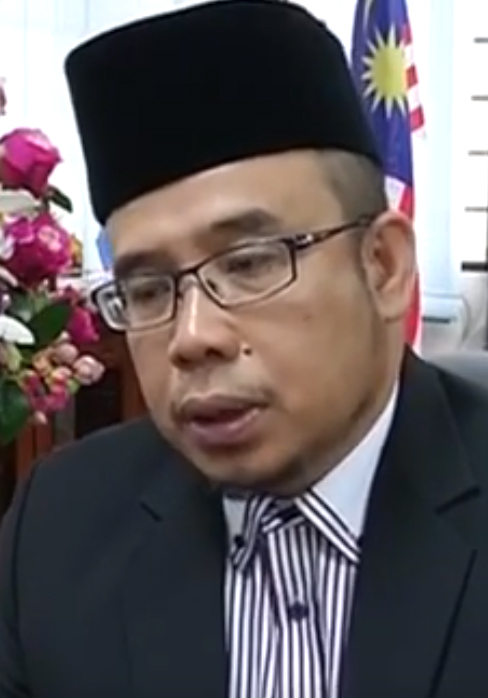
Dato’ Dr. Mohd Asri Zainul Abidin, known as Dr. Maza, is Associate Professor, Pusat Pengajian Ilmu Kemanusiaan School of Humanities, Universiti Sains Malaysia. His areas of specialisation includ Hadith, Ilmu Hadith, Fiqh, Usul Al-Fiqh, Tafsir, Ulum Al-Tafsir, and Islamic History. He holds a BA (Hons) from the the University of Jordan, an MA from Universiti Sains Malaysia, and a PhD from Universiti Islam Antarabangsa. Dr. Maza is a popular preacher, writer, lecturer, and Islamic consultant. He is currently (since February 2015) serving his second term as Mufti of the Malaysian State of Perlis. His first term as a mufti was from 2006 until 2008.
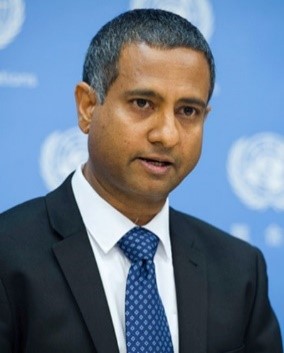
On 1 November 2016, Ahmed Shaheed assumed his mandate as Special Rapporteur on freedom of religion or belief. He is Deputy Director of the Essex Human Rights Centre. He was the first Special Rapporteur of the Human Rights Council on the situation of human rights in the Islamic Republic of Iran since the termination of the previous Commission on Human Rights mandate in 2002. A career diplomat, he has twice held the office of Minister of Foreign Affairs of Maldives. He led Maldives' efforts to embrace international human rights standards between 2003 and 2011. He holds a PhD in International Relations from the University of Queensland, Australia, and a BScEcon (with Honors) in International Politics and Strategic Studies form the University College of Wales, Aberystwyth, United Kingdom.
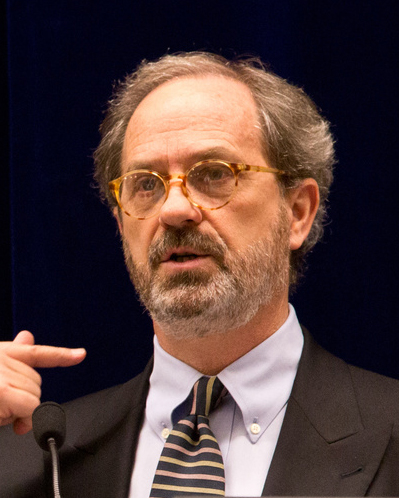
T. Jeremy Gunn, Professor of Law and Political Science, International University of Rabat, Morocco, was previously Professor of International Studies in the School of Humanities and Social Sciences at Al AKhwayn University. Prior to these appointments in Morocco, he served as director of the program on Freedom of Religion and Belief at the American Civil Liberties Union and as director of research at the US Commission on International Religious Freedom. He earned his PhD from Harvard University, JD from Boston University (magna cum laude), MA from the University of Chicago, and BA in International Relations and Humanities from Brigham Young University. His publications include his Harvard dissertation, published as A Standard for Repair: The Establishment Clause, Equality, and Natural Rights, and the articles 'Religious Symbols in Public Schools: The Islamic Headscarf and the European Court of Human Rights Decision in Sahin v. Turkey'; 'Permissible Limitations on Religion'; 'Freedom of Religion and International Politics', World Politics Review; 'Religious Symbols and Religious Expression in the Public Square'; 'The Human Rights System'; and the book, No Establishment of Religion: America’s Original Contribution to Religious Liberty, ed. with John Witte Jr. (OUP 2012).
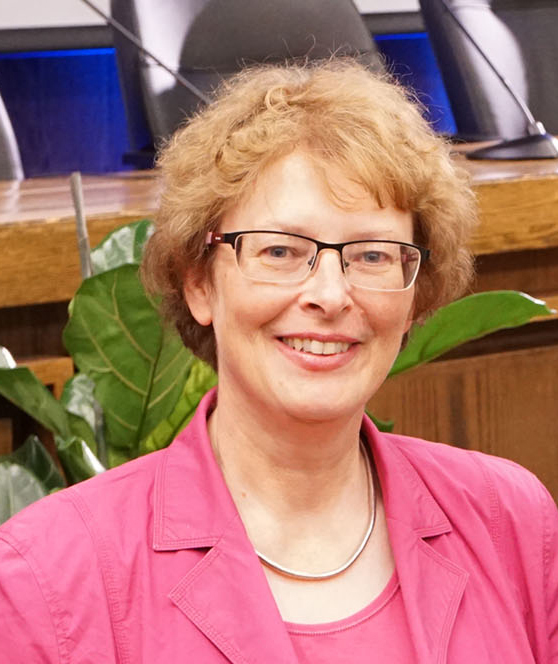
Prof. Dr. S.Ch. Sophie Christine van Bijsterveld graduated in law at the University of Utrecht and received a doctorate in Law at Tilburg University. She was Assistant Professor of Constitutional and Administrative Law, Associate Professor of European and International Public Law, and Professor of Religion, State and Society at Tilberg's School of Humanities. Since September 2014 she has been Professor of Religion, Law and Society at the Radboud University in Nijmegen. She has lectured and published extensively in the fields of (international) human rights protection, religious liberty, constitutional law, and hybrid governance, with more than 200 publications to her credit. Since June 2007 she has been a member of the Dutch Upper House of Parliament [Eerste Kamer der Staten-Generaal] for the Christian Democratic Party (CDA). She was a Member of the Board of the Scientific Institute of the CDA from 2008-2015 and was a founding editor of the Dutch Journal of Religion, Law and Policy.
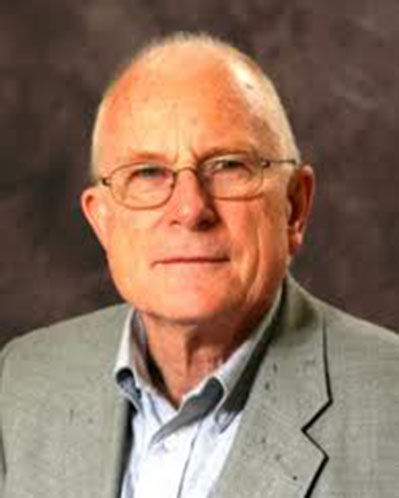
Tore Lindholm is Emeritus Professor (philosophy) at the Norwegian Centre for Human Rights, Faculty of Law, University of Oslo and board member of the Oslo Coalition on Freedom of Religion or Belief and of the Human Rights Committee of Church of Norway. His research interests focus on the grounds for embracing universal human rights, in particular the right to freedom of religion or non-religious basic conviction, and on the ongoing two-way traffic between human rights and religions/basic convictions, in particular with respect to Islam and Muslims. He co-edited Facilitating Freedom of Religion or Belief, now published in Indonesian and Russian. He edited Islamic Law Reform and Human Rights: Challenges and Rejoinders and made a study of Muslim immigrants to Oslo, Religious Commitment and Social Integration: Are There Significant Links? Other writings include "The Cross-Cultural Legitimacy of Universal Human Rights: Plural Justification Across Normative Divides", in Francioni & Scheinin, eds., Cultural Human Rights and "Magna Carta and Religious Freedom", in Magraw & Martinez, eds., Magna Carta and the Rule of Law.
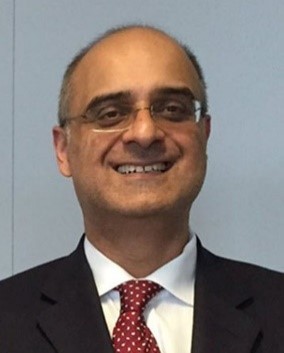
Dr. Kishan Manocha is Senior Adviser on Freedom of Religion or Belief at the Organization for Security and Co-operation Europe Office for Democratic Institutions and Human Rights in Warsaw. He has served as Director of the Office of Public Affairs of the Bahá’í community of the United Kingdom. He holds degrees in medicine and law from the Universities of London and Cambridge respectively. He has extensive experience in religious freedom and minority rights issues in the Middle East, North Africa, and South Asia as a consultant to international and non-governmental organizations. He first trained in psychiatry, completing a Research Fellowship in Forensic Psychiatry, before studying law. He specialized in international criminal and human rights law for his LLM and practiced as a barrister in a number of international criminal law cases before the English courts. He has worked at the Special Court for Sierra Leone and has been a Visiting Research Fellow at the Carr Center for Human Rights at Harvard as well as a Fellow of the Montreal Institute for Genocide and Human Rights Studies at Concordia University. He has lectured at universities in the United Kingdom and Pakistan, and is a Research Fellow at the Religious Freedom and Business Foundation, a Professional Associate at the Centre for Law and Religion at Cardiff University, and a member of the Advisory Council of the Centre for Religion and Global Affairs.
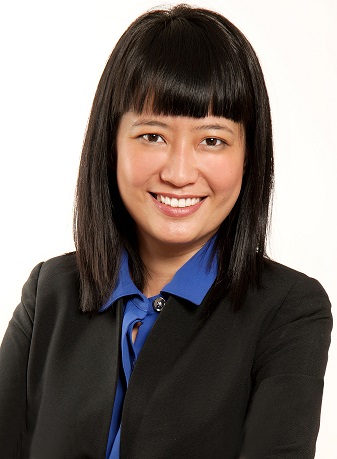
Dr. Jaclyn L. Neo is an Assistant Professor of Law at the National University of Singapore (NUS) and is Deputy Director, Asian Law Institute. She specializes in constitutional law, focusing on constitutional law and religion as well as comparative constitutional law in Southeast Asia. Jaclyn graduated with honours from the NUS Faculty of Law and was a recipient of two graduate scholarships from NUS under which she completed her Masters of Law (LL.M.) and Doctor of the Science of Law (J.S.D.) at Yale Law School. She has published extensively in constitutional law, including in the International Journal of Constitutional Law (I-CON), Oxford Journal of Law and Religion, Human Rights Quarterly, and the Singapore Journal of Legal Studies. Her article on domestic incorporation of international human rights law in a dualist state won the Asian Yearbook of International Law’s DILA International Law Prize. Jaclyn is an Executive Committee member of the NUS Centre for Asian Legal Studies and was also recently appointed to the editorial board of the Asian Journal of Comparative Law and the Asian Yearbook of International Law. In 2015, Jaclyn was appointed as a consultant to WongPartnership, a leading law firm in Singapore. She is currently a member of the Singapore Law Society's Public and International Law Committee.
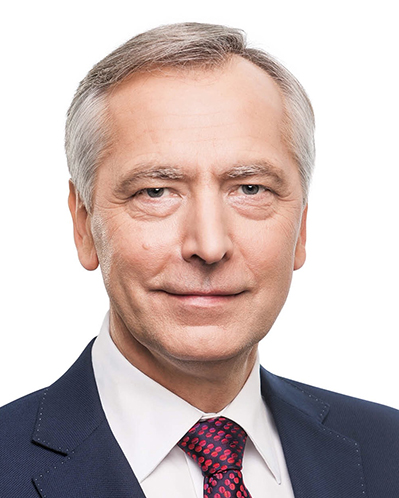
Dr. Ján Figel’ has undertaken pioneering work as the first Special Envoy for Promotion of Freedom of Religion or Belief (FoRB) outside the European Union. After a distinguished career in both academia and politics in Slovakia, he was appointed a Commissioner of the European Union for Education, Training, Culture and Youth. He took part in founding the Christian Democratic Movement (KDH) in Slovakia and was appointed the First Deputy-Prime Minister of the Government of Slovakia and Minister of Transport, Construction and Regional Development 2010-2012. He served as Vice-President of the National Council of the Slovakia Republic between 2012-2016 when he was appointed Special Envoy for Religious Freedom.
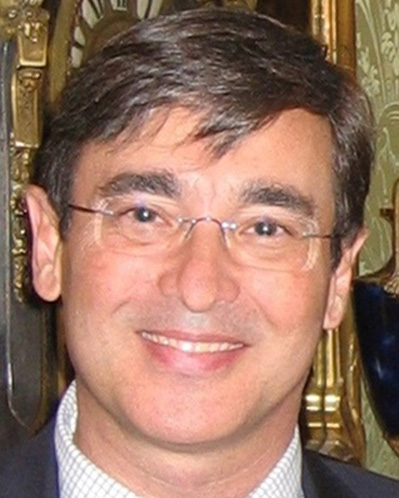
Javier Martínez-Torrón is Professor of Law and Director of the Department of Law and Religion, Complutense University of Madrid and Vice-President of the Section of Canon Law and Church-State Relations of the Spanish Royal Academy of Jurisprudence and Legislation. He is Honorary Foreign Member of the National Academy of Law and Social Sciences of Cordoba, Argentina; a former member of the Organization of Security and Co-operation in Europe/Office for Democratic Institutions and Human Rights Advisory Council for Freedom of Religion or Belief; and a member of the Spanish Advisory Commission for Religious Freedom within the Ministry of Justice. His research on law and religion issues is characterized by a predominant interest in international and comparative law. His writings, published in twenty-three countries and in twelve languages, include twenty books as author, co-author or editor, and more than one hundred essays in legal periodicals or collective volumes. His book Conflictos entre conciencia y ley. Las objeciones de conciencia (2nd ed., in collaboration with R. Navarro-Valls, 2012), contains possibly the most complete study published until now on the issue of conflicts between law and conscience.
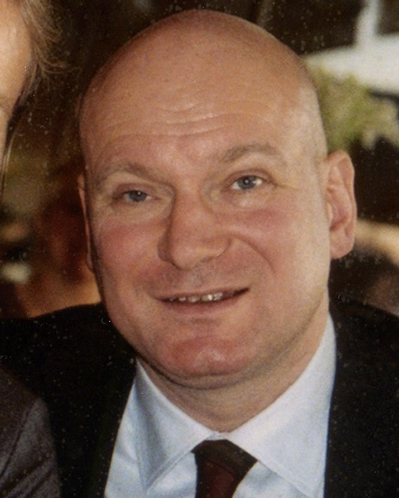
Hans Ingvar Roth is Professor of Human Rights at Stockholm University. He holds a PhD in ethics from Lund University, a Master of Letters in philosophy from Oxford University, a BA in Political Science, Philosophy, Peace and Conflict Studies from Uppsala University and an MA in History and Religious Studies from Stockholm University. He has written extensively on human rights, freedom of religion, affirmative action and multiculturalism. His most recent book is P.C.Chang and the Universal Declaration of Human Rights (forthcoming at University of Pennsylvania Press in October 2018). Roth has also worked as a professor in human rights studies at Lund University (chair), senior lecturer in religious studies at Linköping University, researcher at the Centre for Multiethnic Studies at Uppsala University, senior advisor at the Ministry of Justice, as Human Rights Officer for OSCE in Bosnia and as secretary in the parliamentary committee on discrimination laws. Roth has also been a member of the Swedish Cultural Council (Non-fiction committee). Roth is head of the Swedish team in the EU project “Accept Pluralism” which is a comparative study of integration- and minority policies in Europe. (www.eui.eu/Projects/Accept/Home.aspx) Roth has given lectures at the University of Concepcion in Chile and he is also involved as an advisor in the PhD program at the Department of Education at the University of Concepcion. He has also given guest lectures at Toronto University (Department of Political Science), Aarhus University (Department of Political Science), and Gdansk University (Philosophy). Roth is also active as a public intellectual in daily press, especially in the national newspaper Svenska Dagbladet.
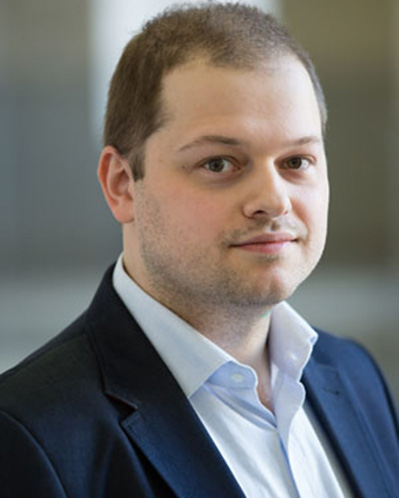
Dr. Dmytro Vovk runs the Center for Rule of Law and Religion Studies at Yaroslav the Wise National Law University (Kharkiv, Ukraine). He was an expert on human rights and rule of law for USAID, OSCE/ODIHR, Council of Europe, and Constitutional Commission of Ukraine. He is a member of the Editorial Board of the journal Philosophy of Law and General Theory of Law. His last publications include, as author, Ukrainian Churches and European Integration Policy: Human Rights Context (2017); Balancing Religious Freedom in the Context of Secularity: Analysis of Court Practice in Ukraine (2015); as editor, Law, Religion and Cinema (2018, in Ukrainian); Tolerance in Transitional Societies: Philosophical, Legal, Political, Sociological Dimensions (2016, in Ukrainian); and, as translator, Paul Gowder, Rule of Law in the Real World (2018, in Ukrainian). Dr. Vovk was a Kennan-Fulbright Fellow at Woodrow Wilson International Center for Scholars (Washington, DC), and was a member of the inaugural ICLRS Certificate Program on Religion and the Rule of Law held at Oxford, UK in 2018. He is currently a visiting researcher at the International Center for Law and Religion Studies, Brigham Young University Law School.
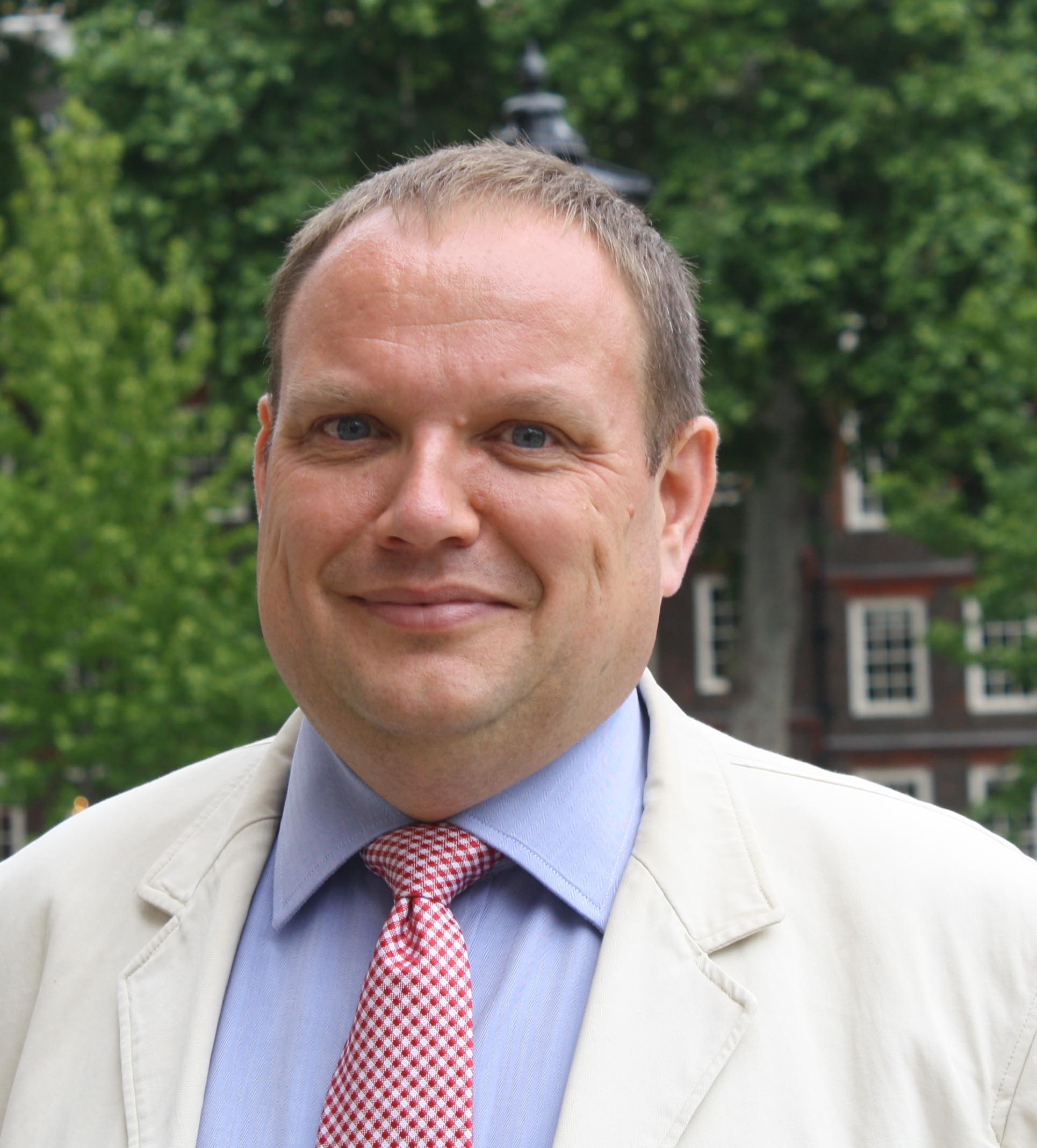
Mark Hill QC is Honorary Professor at the Centre for Law and Religion at Cardiff University; Extraordinary Professor the University of Pretoria; Visiting Professor at King's College London; Adjunct Professor at Notre Dame University Law School, Sydney, Affiliated Fellow of the Center for the Study of Law and Religion at Emory University, Atlanta, and the 2019 Sharwood Lecturer in Canon Law at Trinity College, University of Melbourne. Mark is Chairman of the Ecclesiastical Law Society and Vice-President of the International Consortium for Law and Religion Studies and a former President of the European Consortium for Church and State Research. He is Consultant Editor of the Ecclesiastical Law Journal, a member of the International Advisory Board of the Revista General de Derecho Canónico y Derecho Eclesiástico del Estado and sits on the Editorial Board of the Oxford Journal for Law and Religion. He holds various judicial appointments including one of Her Majesty’s Recorders on the Midland Circuit hearing criminal cases. He is a Deputy Judge of the Immigration and Asylum Appeal Tribunal, and Chancellor of the Anglican Dioceses of Chichester, Leeds, and Europe. His recent publications include the fourth edition of the practitioner text Ecclesiastical Law (2018), Religion, Law and Security (2018), Great Christian Jurists in English History (2017), The Confluence of Law and Religion (2016), and Magna Carta, Religion and the Rule of Law (2015). He is currently co-editing Christianity and Criminal Law: An Introduction and The Routledge Handbook of Freedom of Religion of Belief, both scheduled for publication in 2019.
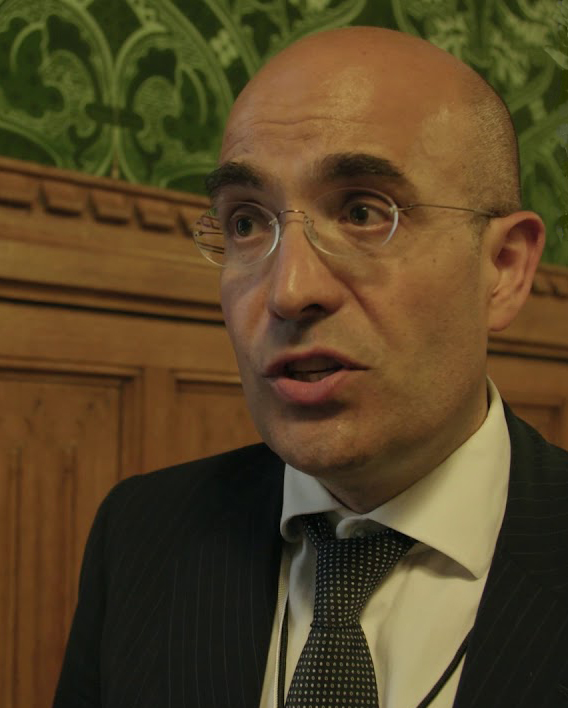
Fabio Petito is Senior Lecturer in International Relations at the University of Sussex. He received his PhD in International Relations from the London School of Economics, where he was also editor of the journal Millennium. Among his publications are Religion in International Relations (2003), Civilizational Dialogue and World Order (2009), and Towards a Postsecular International Politics (2014). He has been the principal investigator of the 'Bridging Voice' British Council-sponsored policy dialogue on 'FoRB and Foreign Policy: A transatlantic dialogue for a multilateral approach to religious freedom' (2014-16) whose main recommendations can be found in F Petito, D Philpott, S Ferrari, and J Birdsall, 'FoRB—Recognising our differences can be our strength: Enhancing transatlantic cooperation on promoting Freedom of Religion or Belief', Policy Brief (summer 2016). He is a member of the International Coordinating Committee of the World Public Forum 'Dialogue of Civilizations' and Scientific Co-ordinator of the Italian Ministry of Foreign Affairs–ISPI initiative on 'Religions and International Relations'.
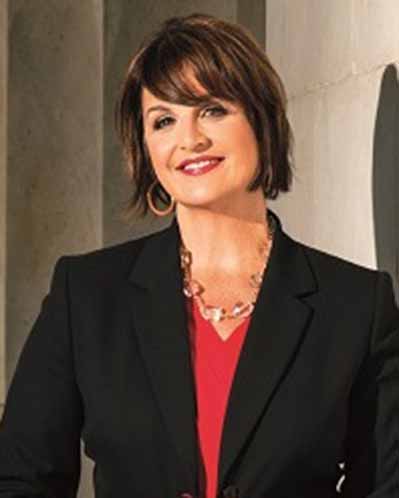
Kristina Arriaga is a commissioner on the United States Commission on International Religious Freedom (USCIRF). Before joining USCIRF, Kristina was the executive director of Becket, a law firm that focuses on religious liberty cases. During her tenure, Becket won several landmark religious freedom cases, securing the rights of Native Americans to use eagle feathers in their powwows, persuading the US Army to let a decorated Sikh soldier serve with his articles of faith, and defending the rights of a small order of Catholic nuns who take care of the dying elderly poor. Prior to her time at Becket, Arriaga served on the US delegation to the United Nations Human Rights Commission. She is a recognized expert on religious freedom and has appeared on MSNBC, CNN Espanol, C-Span, FOX, and NPR, among others. She is the 2017 recipient of the Newseum's Freedom of Expression Award for her work in religious liberty. She earned an MA from Georgetown University.
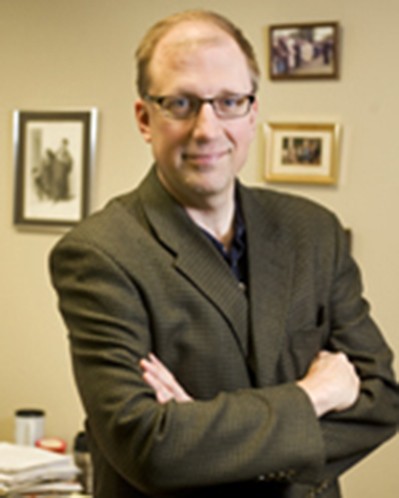
Thomas Berg is the James L. Oberstar Professor of Law and Public Policy at the University of St. Thomas School of Law (Minnesota), where he teaches religious liberty, constitutional law, intellectual property, and the religious liberty appellate clinic. He is the author of The State and Religion in a Nutshell (West), and co-author of Religion and the Constitution (Wolters Kluwer, with McConnell and Lund) and a forthcoming co-edited book on biotechnology patents, Patents on Life (Cambridge University Press). He has also written more than 100 scholarly and popular articles, and approximately 50 briefs in the Supreme Court and other courts on freedom of religion and expression. He is currently at work on a book provisionally titled Protecting Religious Liberty in a Polarized Age. He co-directed St. Thomas’s Murphy Institute for Catholic Thought, Law, and Public Policy; and he contributes to Mirror of Justice, SCOTUS Blog, and other weblogs. He has degrees from the University of Chicago (law, religious studies), Oxford University (Rhodes Scholar), and Northwestern University (journalism). He practiced law in Chicago and was a law clerk on the U.S. Court of Appeals for the Fifth Circuit.
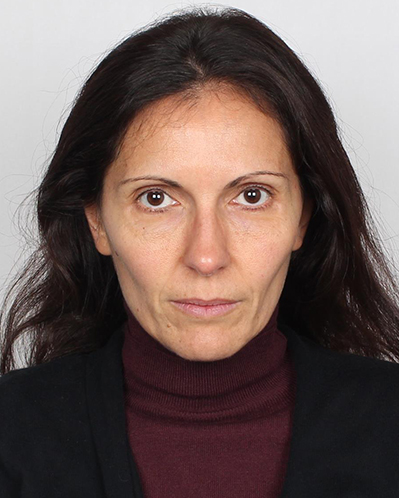
Simona Cruciani works on information management, early warning, and risk assessment in the United Nations Office on Genocide Prevention and the Responsibility to Protect. She joined the Office in July 2008, after having served in United Nations field operations in Burundi and Sudan. In Burundi, Cruciani served in the United Nations Peacekeeping Operations (ONUB) as an Electoral and Civil Affairs Officer. In Sudan, she worked as Civil Affairs Officer for UNMIS. Cruciani’s focus has primarily been on supporting human security, democratization and human rights in conflict and post-conflict situations. She has master’s degrees in Contemporary History, International Affairs, and Public Health.
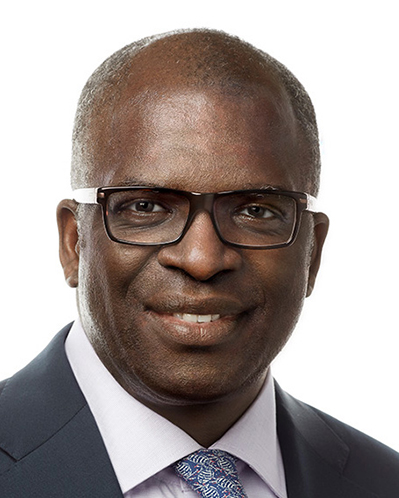
Dr. Ganoune Diop, PhD & Doctor Honoris Causa, is the Director of Public Affairs & Religious Liberty for the General Conference of Seventh-day Adventists World Headquarters, and Secretary General of the International Religious Liberty Association, as well as Secretary of the Conference of General Secretary of Christian World Communions. Dr. Diop was the Permanent Representative of the SDA Church at the United Nations in New York and Geneva. He extensively works to foster mutual understanding between Christian faith traditions and other world religions and philosophies. He regularly trains leaders in capacity building in reference to peace, justice, and human rights: the pillars of the United Nations. He was granted a doctorate Honoris Causa for his work in helping promote a culture of human rights grounded on human dignity. He is executive editor of Religious Freedom World Report and executive editor of Fides et Libertas. Dr. Diop is graced with a fascinating combination of gifts and expertise in Biblical Exegesis and Theology, Philology with an emphasis on Biblical languages, and Comparative World Religions and Philosophies. He earned a masters’ degree in Philology at the School of Languages and Civilizations of the Ancient Near East in Paris. He earned a PhD candidacy in New Testament Studies with a focus on Apocalyptic Literature at the Catholic University of Paris. He also earner a diploma of in-depth studies in New Testament. He completed postgraduate studies in Semiotics Studies and applied Linguistics at the University of Sorbonne, Paris. He graduated from Andrews University with a PhD in Old Testament Studies in 1995. He was the Director of Global Study Centers on World Religions and Philosophies at the World Headquarters of the Seventh-day Adventist church.
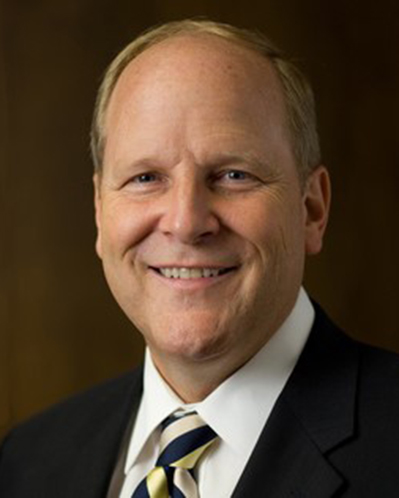
Gary B. Doxey, Associate Director, International Center for Law and Religion Studies, J. Reuben Clark Law School, Brigham Young University, joined the Center in 2005 and serves as regional advisor for Latin America. He also heads the Center’s development effort. He has co-authored several commentaries on draft legislation, and a number of amicus briefs in Latin America. He also teaches in the History Department at Brigham Young University. Professor Doxey’s career has been divided between academia and public service. Prior to joining the law school, he was chief of staff and general counsel to Utah governors Mike Leavitt and Olene Walker and served as deputy commissioner of financial institutions and as associate general counsel to the Utah Legislature. He has a PhD in History from Cambridge University and a JD from Brigham Young University.
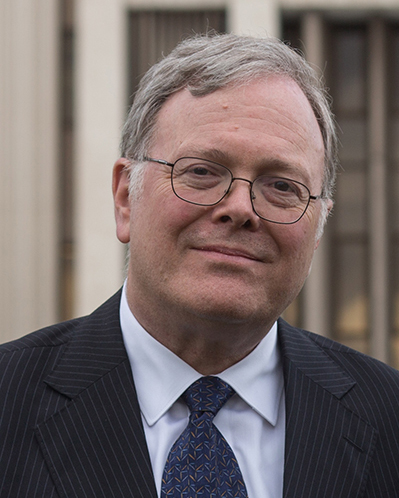
Cole Durham is Susa Young Gates University Professor of Law and Founding Director of the International Center for Law and Religion Studies (ICLRS) at the J. Reuben Clark Law School of Brigham Young University. He is a graduate of Harvard College and Harvard Law School, where he was a Note Editor of the Harvard Law Review and Managing Editor of the Harvard International Law Journal. He has been heavily involved in comparative law scholarship, with a special emphasis on comparative constitutional law. He is a founding Editor-in-Chief of the Oxford Journal of Law and Religion. He served as the Secretary of the American Society of Comparative Law from 1989 to 1994. He is an Associate Member of the International Academy of Comparative Law in Paris—the premier academic organization at the global level in comparative law. He served as a General Rapporteur for the topic 'Religion and the Secular State' at the 18th Congress of the International Academy of Comparative Law, held in July 2010. He served in earlier years as Chair both of the Comparative Law Section and the Law and Religion Section of the American Association of Law Schools. Professor Durham was President of the International Consortium for Law and Religion Studies (ICLARS) from 2011-2016.
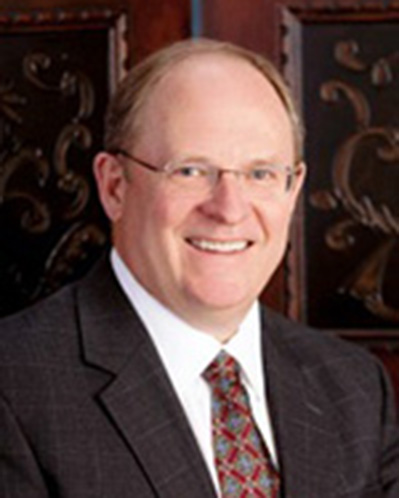
Scott Isaacson is Senior Fellow with the International Center for Law and Religion Studies of the J. Reuben Clark Law School, Brigham Young University, and a member of the International section of the law firm Kirton McConkie. He advises domestic and foreign businesses and not-for-profit organizations regarding all aspects of international trade and business, with specific emphasis in Latin America. He previously served as International Legal Counsel for The Church of Jesus Christ of Latter-day Saints, supervising all of the church's legal work in South America. As part of this position, he managed international real estate acquisitions and construction, complex litigation and international arbitration, international tax compliance for not-for-profit organizations, government relations, and legal implementation of new programs. On a regular basis, he makes presentations at international seminars held in countries such as Chile, Argentina, and Mexico about legal matters related to non-profit and religious organizations. Isaacson is recognized as one of Utah's Legal Elite in international law.
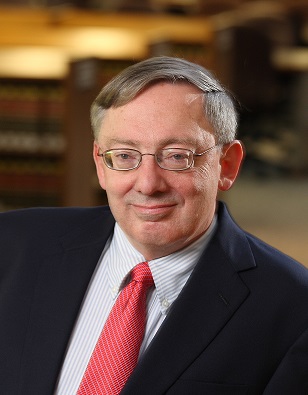
Douglas Laycock, one of the nation's leading authorities on the law of remedies and also on the law of religious liberty, is Alice McKean Young Regents Chair in Law Emeritus, University of Texas Law School and the Robert E. Scott Distinguished Professor of Law and Professor of Religious Studies at the University of Virginia. Before joining Virginia's faculty in 2010, Laycock served as the Yale Kamisar Collegiate Professor of Law at the University of Michigan Law School. Prior to that he taught for 25 years at the University of Texas and for five years at the University of Chicago. He is the author of the leading casebook Modern American Remedies; the award-winning monograph The Death of the Irreparable Injury Rule; and many articles in the leading law reviews. He has co-edited a collection of essays, Same-Sex Marriage and Religious Liberty, and he recently published Religious Liberty, Volume I: Overviews and History, and Volume II: The Free Exercise Clause. These two volumes are the first half of a four-volume collection of his many writings on religious liberty. He has in addition published many articles on religious liberty and on the law of remedies. He is an experienced Supreme Court litigator, and played a key role in developing state and federal religious liberty legislation. He is a graduate of Michigan State University and the University of Chicago Law School, a Fellow of the American Academy of Arts and Sciences, and a Vice President of the American Law Institute.
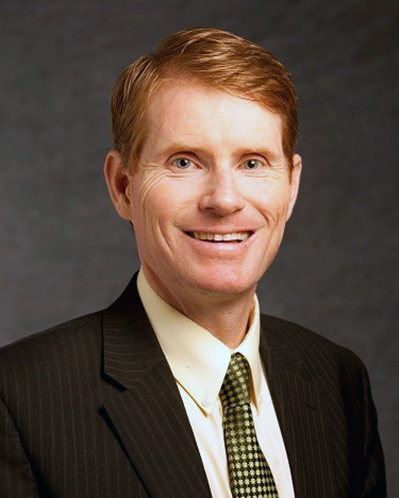
Nicholas Miller is Professor of Church History at Andrews University in Berrien Springs, Michigan, where he also directs the International Religious Liberty Institute. He holds degrees in law (Columbia University), church history (University of Notre Dame), and theology (Pacific Union College), including a PhD in the history of religious freedom in America. He has appeared before the U.S. Supreme Court in the church/state case of Mitchell v. Helms, written many federal appellate briefs on church/state matters, and authored numerous scholarly and professional articles on matters of the law and history of church/state matters, and written a book dealing with religious influences on the American Constitution entitled The Religious Roots of the First Amendment (OUP 2012).
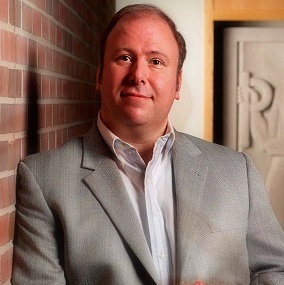
Professor Ravitch's career has included experience in private practice and on Capitol Hill. Since joining Michigan State University's Law College he has authored several books, and a number of law review articles, essays, book reviews, and book chapters, as well as amicus briefs to the U.S. Supreme Court. He is the author of Freedom’s Edge: Religious Freedom, Sexual Freedom, and the Future of America (Cambridge University Press, 2016); Marketing Creation: The Law and Intelligent Design (Cambridge University Press 2012), Masters of Illusion: The Supreme Court and the Religion Clauses (NYU Press 2007); Law and Religion: Cases, Materials, and Readings (West 2004)(2nd Ed. 2008) (3rd Ed. 2015 with Larry Cata Backer), School Prayer and Discrimination: The Civil Rights of Religious Minorities and Dissenters (Northeastern University Press, 1999 & paperback edition 2001). He is co-author, with the late Boris Bittker and with Scott Idleman, of the first comprehensive treatise on Law and Religion in more than one hundred years, Religion and the State in American Law (Cambridge University Press 2015) (this project was supported by a generous grant from the Lilly Endowment). He is also co-author of, Employment Discrimination Law (Prentice Hall, 2005) (with Pamela Sumners and Janis McDonald).
Professor Ravitch's articles, which have appeared in a number of highly regarded journals, have primarily focused on law and religion in the U.S. and Japan, but he has also written about civil rights law and disability discrimination. He has given numerous academic presentations nationally and internationally. In 2001, he was named a Fulbright scholar and served on the law faculty at Doshisha University (Japan), where he taught courses relating to U.S. constitutional law and law and religion. He serves on a Fulbright Review Committee under the auspices of the Council for the International Exchange of Scholars. Complementing his professional service is his commitment to community service; Professor Ravitch has made dozens of public presentations explaining the law before school groups, community groups, and service clubs and has served as an expert commentator for print and broadcast media.
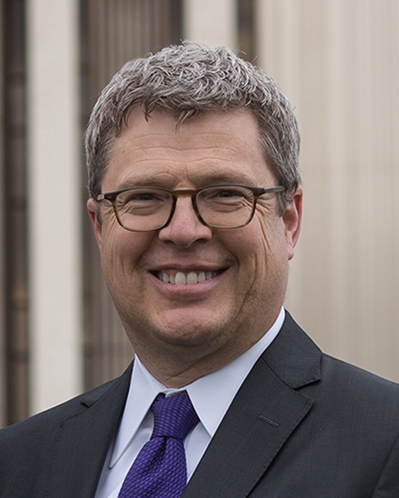
Brett G. Scharffs is Rex E. Lee Chair and Professor of Law and Director of the International Center for Law and Religion Studies at Brigham Young University Law School. He received a BSBA in international business and an MA in philosophy at Georgetown University and, as a Rhodes Scholar, earned a BPhil in philosophy at Oxford. He received his JD from Yale Law School, where he was senior editor of the Yale Law Journal. He is a recurring visiting professor at Central European University in Budapest and at the University of Adelaide Law School. He has for several years helped organize certificate training programs in religion and the rule of law in China and in Vietnam and has taught and helped organize programs at several Indonesian universities on sharia and human rights. Author of more than 100 articles and book chapters, he has made more than 300 scholarly presentations in 30 countries. His casebook, Law and Religion: National, International and Comparative Perspectives (with Cole Durham, 2nd English edition forthcoming 2017), has been translated into Chinese and Vietnamese, with Turkish, Burmese, and Arabic in process. He is author with Elizabeth Clark of Religion and Law in the USA, a 2016 contribution to Wolters Kluwer’s International Encyclopaedia of Laws.
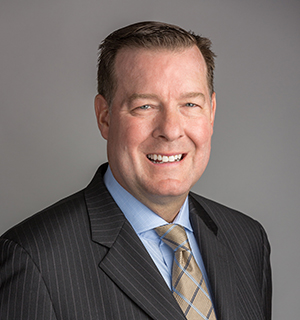
Chris Seiple is the president emeritus of the Institute for Global Engagement, a think- and do-tank operating at the intersection of religion, realpolitik, and reconciliation. He has worked in Northern/Eastern Africa, the Middle East, Central/South Asia, and China and Southeast Asia. Dr. Seiple is chief executive officer of the Sagestone Group, which advises on strategy and training. He is a senior fellow at the University of Washington’s Jackson School of International Studies, where he teaches cross-cultural religious literacy. A former Marine infantry officer (1990-99), Dr. Seiple has also served as an advisor to the U.S. secretary of state, co-chairing the secretary’s religion and foreign policy working group, whose recommendations led to the creation of the Office of Religion and Global Affairs. He is the former chair of the World Economic Forum’s Council on the Role of Faith (2014-2015). Dr. Seiple is an inaugural member of the U.S. Marine Corps Commandant’s Strategic Initiatives Group, where he helped develop/implement the Chemical-Biological Incident Response Force in 1996; he was also seconded to the 1997 National Defense Panel, whose final report he helped draft. Dr. Seiple’s book, The U.S. Military/NGO Relationship in Humanitarian Interventions, is a seminal work in the field. He is the 2003 founder of the Routledge-published journal The Review of Faith & International Affairs, and he is the coeditor of The Routledge Handbook on Religion and Security (2013). Dr. Seiple has a BA in international relations from Stanford University, an MA in national security from the Naval Postgraduate School, and a PhD from Tufts University’s Fletcher School of Law and Diplomacy.
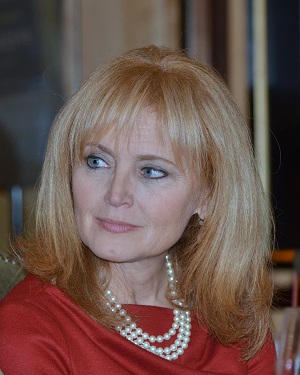
Dr. Katrina Lantos Swett serves as President of the Lantos Foundation for Human Rights and Justice, established in 2008 to continue the legacy of her father, the late Congressman Tom Lantos, who served as Chairman of the House Foreign Affairs Committee and was the only Holocaust survivor ever elected to the US Congress. Congressman Lantos was the founder of the Congressional Human Rights Caucus and was widely acknowledged as one of our nation’s most eloquent and forceful leaders on behalf of human rights and justice. Under her leadership, The Lantos Foundation has rapidly become a distinguished and respected voice on key human rights concerns ranging from advancing rule of law globally and fighting for Internet freedom in closed societies to combatting the persistent and growing threat of anti-Semitism and Holocaust denial. Dr. Lantos Swett is the former Chair and Vice-Chair of the United States Commission on International Religious Freedom (USCIRF) and teaches Human Rights and American Foreign Policy at Tufts University. She currently serves as Co-Chair of the Board of the Committee for Human Rights in North Korea (HRNK) and the Budapest based Tom Lantos Institute. Dr. Lantos Swett also serves on the Advisory Board of UN Watch, the annual Anne Frank Award and Lecture, The Warren B. Rudman Center for Justice, Leadership, and Public Policy, and the Brigham Young University Law School. Lantos Swett earned a Political Science degree from Yale University at the age of 18, a Juris Doctor degree from the University of California, Hastings College of the Law, and a PhD in History from The University of Southern Denmark.
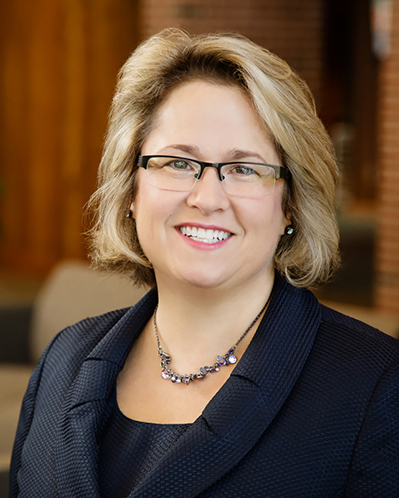
Robin Fretwell Wilson is the Roger and Stephany Joslin Professor of Law at the Illinois College of Law, where she directs the College of Law’s Family Law and Policy Program and the Epstein Health Law and Policy Program. She specializes in family law and health law, and her research and teaching interests also include biomedical ethics, law and religion, children and violence, and law and science. The author of many articles and eleven books, she is a frequent contributor to national and international media, and has presented her research across the world. Her scholarship has been cited in courts across the US. A member of the American Law Institute, Professor Wilson was elected in 2014 to the Executive Council of the International Society of Family Law. She is a consultant to the United Arab Emirates’ Judicial Department, assisting them to create a parallel court system for the adjudication by expatriates of family law matters using the laws of their home country or of their faith traditions. She chairs the Law and Religion section of the Association of American Law Schools (AALS), and is the past chair of the AALS’ Section on Family and Juvenile Law and the AALS’ Section on Law, Medicine & Healthcare. Professor Wilson directs the Fairness for All Initiative, sponsored by the Templeton Religious Trust, providing tangible support and advice to thought-leaders, stakeholders, policymakers, and state and local legislators who seek balanced approaches that respect both LGBT rights and religious freedom. She contributed to the Utah Compromise, balancing religious liberty and LGBT rights. She is the founder and director of Tolerance Means Dialogues, and has received multiple awards for her contributions to the defense of religious freedom and fairness for all. A graduate of the University of Virginia School of Law, Professor Wilson clerked for the United States Court of Appeals for the Fifth Circuit and practiced at Fulbright & Jaworski, LLP and Mayor, Day, Caldwell & Keeton, LLP.
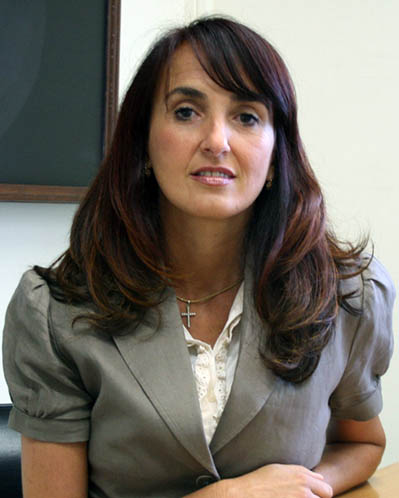
Carmen Asiaín Pereira serves as a senator in the Parliament of Uruguay, and as vice president of the Latin American Consortium for Freedom of Religion and Belief. She is a professor of law and religion, graduate studies program, at the University of Montevideo and a professor of law and religion and of health law, graduate program, Facultad de Teología del Uruguay Monseñor Mariano Soler. She has participated as a panelist on religious liberty and law and religion at international conferences, and at the UN, and has published papers internationally on many topics. Dr. Asiaín is a member of the Judeo-Christian Fellowship and a founding member and vice-president of the Instituto de Derecho Religioso del Estado (IDRE), Uruguay, and of the International Advisory Council, Canon Law and Ecclesiastical Law General Journal, IUSTEL. As an attorney accredited by the National Ecclesiastical Court (Uruguay and Argentina) and a partner at the law firm of Pollak & Brum, she is a litigator in matrimonial canon law. She is an advisor and litigator in cases involving freedom of conscience and religion or belief against the State. Dr. Asiaín received a doctor in law and social sciences from the University of the Republic.
